"I am the vine, you are the branches; he who abides in Me and I in him, he bears much fruit, for apart from Me you can do nothing." (John 15:5)
This lesson is the sixth in the series on the "I AM" statements of Christ. Today's lesson discusses Jesus' statements, "I am the true vine" in John 15:1, and "I am the vine" in John 15:5.
Consider. Do you believe that Jesus Christ is the true vine? Are you staying in close relationship with him? Are you bearing much fruit for him?
"I am the true vine."
Jesus had just concluded celebrating Passover with his disciples (John 13:1, 4). The same evening, Jesus said to his disciples, "I am the true vine, and My Father is the vinedresser" (John 15:1). Jesus' disciples likely already knew the vine as the image of Israel from the Old Testament scriptures. Jesus added new meaning to a familiar figure when he said, "I am the true vine" (Ref. 1).
In the Old Testament, the scriptures describe Israel as a vine and as a vineyard which God had planted. The psalmist describes God's people, Israel, as a vine that God removed from Egypt (Psalm 80:1-13). Further, the psalmist asks God to "Look down from heaven and see, and take care of this vine, even the shoot which Your right hand has planted" (Psalm 80:14-15). The prophet Isaiah describes a song in which my "well-beloved" plants a vineyard (Isaiah 5:1-2). The "well-beloved" is the Lord of hosts (Isaiah 5:7). The transliteration of the Hebrew word for Lord is YHVH, the proper name of the God of Israel (Ref. 2). The vineyard is the house of Israel (Isaiah 5:7). Isaiah states that God planted the vineyard with "the choicest vine," and that God expected it to produce "good grapes," but "It only produced worthless ones" (Isaiah 5:2). God "looked for justice, but behold, bloodshed." God looked "for righteousness, but behold, a cry of distress" (Isaiah 5:7). The prophet Jeremiah spoke of the house of Jacob and all the families of the house of Israel (Jeremiah 2:4). "For long ago I broke your yoke and tore off your bonds; but you said, 'I will not serve!' For on every high hill and under every green tree you have lain down as a harlot. Yet I planted you a choice vine, a completely faithful seed. How then have you turned yourself before Me into the degenerate shoots of a foreign vine? (Jeremiah 2:20-21). When Jesus says, "I am the true vine," in John 15:1, he contrasts himself with the degenerate vine which had not fulfilled the purpose God desired. Jesus is the full revelation of God's faithfulness (Ref. 3). "Jesus is the fullest realization of the hope of Israel, of her expectations, of what God had intended her to be" (Ref. 4). "I am the vine, you are the branches."
Note that Jesus repeats his statement, "I am the vine" (John 15:1, John 15:5). Good teachers repeat important principles for their students. The second time, in John 15:5, Jesus adds the application. Jesus said, "I am the vine, you are the branches; he who abides in Me and I in him, he bears much fruit, for apart from Me you can do nothing" (John 15:5).
The Greek word for abide is menó, which means to stay in a given place, state, relation or expectancy (Strong's Exhaustive Concordance - Ref. 5). A branch of a natural grapevine must remain part of the vine in order to live, grow, and bring forth fruit. Likewise, we, as Jesus' disciples, must abide continually in him so that we live, grow, and bring forth fruit. Jesus said that we abide in him by having his word in us (John 15:7), by keeping his commandments (John 15:10), and by abiding in his love (John 15:10). Jesus also said that God prunes us so we will bear more fruit (John 15:2). Fruitfulness is the product of a godly life living in union with Christ. Jesus said, "You will know them by their fruits. Grapes are not gathered from thorn bushes nor figs from thistles, are they? So every good tree bears good fruit, but the bad tree bears bad fruit" (Matthew 7:16-17). The Apostle Paul described the fruit of godly character that the Spirit develops in us when we abide in Christ. "But the fruit of the Spirit is love, joy, peace, patience, kindness, goodness, faithfulness, gentleness, self-control; against such things there is no law" (Galatians 5:22-23). The key to bearing fruit in our Christian life is to abide in close relationship with Jesus Christ, who is the true vine.
Apply. Are you abiding in Christ? Are you bearing fruit for him?
0 Comments
"Then Jesus again spoke to them, saying, 'I am the Light of the world; he who follows Me will not walk in the darkness, but will have the Light of life.' " (John 8:12)
"I have come as Light into the world, so that everyone who believes in Me will not remain in darkness." (John 12:46)
"Christ is the Light of the world. God is light, and Christ is the image of the invisible God. One sun enlightens the whole world; so does one Christ, and there needs no more." -- Matthew Henry (1662-1714) (Ref. 1, Ref. 2)
This lesson is the first in a series on the "I AM" statements of Christ. This lesson discusses Jesus' statement, "I am the Light of the world" (John 8:12).
Consider. What does it mean to you that Jesus is the Light of the world? Do you have the Light of life?
God is Light
The teaching that God is Light begins in the Old Testament and continues through the New Testament. David wrote, "The Lord is my light and my salvation; Whom shall I fear?" (Psalm 27:1). The prophet Micah said, "Though I dwell in darkness, the Lord is a light for me" (Micah 7:8). The disciple John, wrote, "God is Light, and in Him there is no darkness at all" (1 John 1:5).
God's Light Purposely Illumines Mankind
Jesus' Jewish listeners would recall Exodus 13:21 - "The Lord was going before them in a pillar of cloud by day to lead them on the way, and in a pillar of fire by night to give them light, that they might travel by day and by night." The psalmist wrote, "Thy word is a lamp unto my feet, and a light unto my path" (Psalm 119:105). The author of 2 Samuel 22:29 tells us "For You are my lamp, O Lord; And the Lord illumines my darkness."
"I am the Light of the world"
Jesus, the Eternal One, is the Light of the world because:
"He who follows Me will not walk in the darkness"
Let's discuss this phrase in three parts:
a) "He who follows Me" - The Greek word for follow is akoloutheó, which means to join as a disciple (Ref. 5). In John 8:12, Jesus "likens himself to a torch which the disciple follows" (Ref. 5). Jesus frequently spoke about what it means to follow him as a disciple (for example, Luke 14:27). b) "Will not walk" - The Greek word for walk is peripateó. Peripateó means (in the ethical sense) how I conduct my life (Ref. 6). c) "In the darkness" - The Greek word for darkness is scotia (Ref. 7). Scotia has a dual meaning. In the literal sense, scotia (darkness) is the absence of daylight (John 6:17). In the figurative sense, scotia (darkness) is the state we are in before we believe in Christ, that is, a state of ignorance, guilt, and sin (Ref. 8). Putting these three parts together - "He who follows Me shall not walk in darkness" means He who follows Me [Jesus] as a disciple will no longer conduct his life in a state of ignorance, guilt, and sin. Note that Jesus also said, "I have come as Light into the world, so that everyone who believes in Me will not remain in darkness" (John 12:46, italics added). Being in darkness is our (mankind's) default condition. Jesus has come so that when we believe in him, God the Father transfers us from the domain of darkness to the kingdom of the Son of God (Colossians 1:13). "But will have the Light of life"
Just as sight is a function of physical life, Christ is the Light for our spiritual life. John says, referring to Christ, "In Him was life, and the life was the Light of men" (John 1:4). When we believe in Jesus Christ, the divine light of Christ continually shines in us, guiding us to life everlasting (Ref. 9).
Apply. Do you believe that Jesus Christ is the Light of the world? If not, then pray and put your trust in him today.
Are you a disciple of Christ? Are you following him? Do you have the Light of life?
References
1. https://biblehub.com/commentaries/mhc/john/8.htm 2. https://en.wikipedia.org/wiki/Matthew_Henry 3. https://www.ScriptureWay.com/home/who-is-jesus 4. https://www.ScriptureWay.com/bible-verses-about-eternal-life 5. https://biblehub.com/greek/190.htm 6. https://biblehub.com/greek/4043.htm 7. https://biblehub.com/greek/4653.htm 8. https://biblehub.com/commentaries/poole/john/12.htm (Matthew Poole's Commentary on John 12:46) 9. https://biblehub.com/commentaries/benson/john/8.htm
"This is eternal life, that they may know You, the only true God, and Jesus Christ whom You have sent." (John 17:3)
"Life eternal, then, is not mere conscious and unending existence, but a life of acquaintance with God in Christ." (Jamieson-Fausset-Brown Bible Commentary, Ref. 1)
This lesson describes the biblical definition of eternal life. This lesson primarily uses the Scriptures about eternal life in the Gospel of John. In the next lesson in the series, we will focus on who receives eternal life and how to receive eternal life.
Consider. Think for a moment. How would you define eternal life? How would you explain eternal life to an inquisitive unbeliever, or to a new Christian? For believers in Christ, eternal life certainly includes living with God after our physical death (John 11:25-26). However, the Bible has much more to say about the characteristics of eternal life.
Eternal life is a free gift of God to believers in Jesus Christ.
The Apostle Paul states, "For the wages of sin is death, but the free gift of God is eternal life in Christ Jesus our Lord" (Romans 6:23). In this verse, the Greek word for gift is charisma. Charisma means a gift of grace, an undeserved favor (Ref. 2). Thus, eternal life is not something we deserve or earn. Eternal life is an undeserved gift of God's grace and favor. "In spite of your sanctification as Christians, still you will not have earned eternal life; it is the gift of God’s grace" (Ref. 3).
Jesus said, "My sheep hear My voice, and I know them, and they follow Me; and I give eternal life to them, and they will never perish; and no one will snatch them out of My hand" (John 10:27-28). For the believer, eternal life begins in the present, the here and now.
Jesus described eternal life in the present tense. Thus, eternal life is not just in the future, but is a present possession of the believer which continues into the future.
John 3:36 - "He who believes in the Son has eternal life; but he who does not obey the Son will not see life, but the wrath of God abides on him." John 5:24 - "Truly, truly, I say to you, he who hears My word, and believes Him who sent Me, has eternal life, and does not come into judgment, but has passed out of death into life. John 6:47 - "Truly, truly, I say to you, he who believes has eternal life." In John 5:24, note the importance of hearing Jesus' words. Jesus said, "He who hears My word, and believes Him who sent Me, has eternal life." For believers in Christ, eternal life continues with God after our physical death.
Jesus said to Martha, "I am the resurrection and the life; he who believes in Me will live even if he dies, and everyone who lives and believes in Me will never die. Do you believe this?" (John 11:25-26).
To the thief on the cross who asked Jesus to remember him, Jesus said, "Truly I say to you, today you shall be with Me in Paradise" (Luke 23:42-43). Jesus said to his disciples, "In My Father’s house are many dwelling places; if it were not so, I would have told you; for I go to prepare a place for you. If I go and prepare a place for you, I will come again and receive you to Myself, that where I am, there you may be also" (John 14:2-3). Jesus defined eternal life as knowing God experientially.
"Jesus spoke these things; and lifting up His eyes to heaven, He said, 'Father, the hour has come; glorify Your Son, that the Son may glorify You, even as You gave Him authority over all flesh, that to all whom You have given Him, He may give eternal life. This is eternal life, that they may know You, the only true God, and Jesus Christ whom You have sent" (John 17:1-3).
In John 17:3, the Greek word for know is ginóskó. Ginóskó means to know, especially through personal experience (first-hand acquaintance) (HELPS Word-studies, Ref. 4). Knowing God experientially requires knowing Jesus who is the truth (John 14:6), as well as knowing and living the Word of God on a daily and life-long basis. "This life eternal, then, is not mere conscious and unending existence, but a life of acquaintance with God in Christ" (Ref. 1). Eternal life is a quality of life, not just the duration of life.
The Greek word for eternal is aiónios, which means perpetual, unending, age-long (Strong's Concordance, Ref. 5). Aiónios includes the character of that which lasts for an age, as contrasted with that which is brief and fleeting (Ref. 5). "Aiónios does not focus on the future per se, but rather on the quality of the age it relates to. Thus, believers live in eternal life right now, experiencing this quality of God's life now as a present possession" (Helps Word-studies, Ref. 5).
Summary. Eternal life is a free gift of God to those who believe in Jesus Christ. Eternal life begins when we put our faith in Jesus. As believers in Christ, eternal life continues with God after our physical death. Eternal life is the quality of life that results when we know Jesus Christ by experience, on a first-hand basis.
Apply. Think for a moment. In your own words, how would you describe eternal life? Write down your description of eternal life in a few sentences. What Scripture verse would be your key reference?
Related Lessons
"Paradise, Jesus, and the Penitent Thief" (Luke 23:42-43) "What is the Tree of Life in the Bible?" (Genesis 2:9, Revelation 2:7) "Made Alive Together with Christ - A New Quality of Life" (Ephesians 2:4-5) "Jesus is the Resurrection and the Life (Job's Question, Jesus' Answer)" (Job 14:14, John 11:25-26)
"Then Jesus said to those Jews who believed Him, 'If you abide in My word, you are My disciples indeed. And you shall know the truth, and the truth shall make you free.' " (John 8:31-32)
This lesson is the third in the series, "About the Truth." The first lesson was "God's Truth in the Old Testament" where we learned that God's Word in its entirety is truth (Psalm 119:160). The second lesson was "Jesus is the Truth" based on John 14:6. This lesson discusses Jesus' instructions to believers to abide in the Word and to know the truth experientially.
Consider.
To whom was Jesus speaking?
When Jesus spoke the promise, "You shall know the truth, and the truth shall make you free," Jesus was speaking to people who believed him. That is, Jesus was speaking to people who had faith in him and who trusted him. The beginning of John 8:31 states, "So Jesus was saying to those Jews who had believed Him ..."
Believe in Jesus.
Jesus does not ask us to believe a truth, or any truth (Ref. 1). Jesus asks us to believe that He is the truth (John 14:6). If you have never put your trust in Jesus, or if you have strayed away from Jesus, put your trust in him today. Believing in Jesus who is the Truth will set you free from slavery to sin, and will give you eternal life.
"Therefore there is now no condemnation for those who are in Christ Jesus. For the law of the Spirit of life in Christ Jesus has set you free from the law of sin and of death" (Romans 8:1-2). "For God so loved the world, that He gave His only begotten Son, that whoever believes in Him shall not perish, but have eternal life" (John 3:16). Abide in the Word and know the truth experientially.
Jesus says to believers in the second portion of John 8:31 and in verse 32, "If you abide in My word, you are My disciples indeed. And you shall know the truth, and the truth shall make you free." The Greek word for abide is menó which means remain, abide (Ref. 2). As believers in Christ, we are to abide in the Word, and persevere in studying, learning, and applying God's Word.
Jesus says that if we abide in the Word we will know the truth experientially (John 8:31-32). The Greek word for know is ginóskó which means to know, especially through personal experience (first-hand acquaintance) (Ref. 3). Knowing the truth experientially requires knowing Jesus who is the truth, as well as knowing and living the Word of God on a daily and life-long basis.
Jesus says that if we abide in the Word we will know the truth and the truth will make us free (John 8:31-32). The Greek verb make free is eleutheroó which means liberate, set free, release from bondage (Ref. 4). When we trust Jesus as our Lord and Savior, abide in his Word, and grow in knowledge of his truth, we are set free from slavery to sin. Jesus says, "Truly, truly, I say to you, everyone who commits sin is the slave of sin" (John 8:34). "So if the Son makes you free, you will be free indeed" (John 8:36).
Billy Graham Quote
I will end this post with a quote from Billy Graham's message, "What is Truth?" (Ref. 1)
"Turn to Christ—to the truth. Jesus said, 'You shall know the truth, and the truth shall make you free' (John 8:32). He said, 'I am … the truth' (John 14:6). Jesus did not say, 'You shall know a truth' or 'any truth' but 'the truth.' He’s the embodiment of all truth. Jesus said, 'If you do not believe that I am He, you will die in your sins' (John 8:24). If you don’t believe that and don’t accept Christ, you will die in your sins and you’ll be lost. Jesus Christ claimed to be ultimate truth. Are you willing to face the truth?" (Ref. 1)
Apply. Are you willing to face the ultimate truth of Jesus Christ? Will you put your faith and trust in him? What steps will you take to abide in God's Word and to grow in your knowledge of the truth?
Related Lessons
"God's Truth in the Old Testament" (Psalm 119:160) "Jesus is the Truth" (John 14:6) "The Spirit of Truth" (John 16:13-14) "Jesus - Witness to the Truth" (John 18:37)
References
1. https://billygraham.org/decision-magazine/march-2017/classic-message-billy-graham-truth/ ©1985 Billy Graham Evangelistic Association. Used with permission. All rights reserved. 2. https://biblehub.com/greek/3306.htm 3. https://biblehub.com/greek/1097.htm 4. https://biblehub.com/greek/1659.htm
Jesus said to him, “I am the way, and the truth, and the life; no one comes to the Father but through Me." (John 14:6)
This article is the fifth and final article in the series on the topic, "About the Way."
Consider. The eternal Jesus Christ, the Son of God, is the way to the Father and to the Father's dwelling place in heaven.
On the night before his crucifixion and departure, Jesus told his disciples, "In My Father’s house are many rooms; if that were not so, I would have told you, because I am going there to prepare a place for you. And if I go and prepare a place for you, I am coming again and will take you to Myself, so that where I am, there you also will be. And you know the way where I am going" (John 14:2-4). Thomas said to Him, "Lord, we do not know where You are going; how do we know the way?" (John 14:5) Jesus replied with his famous declaration, "I am the way, and the truth, and the life; no one comes to the Father except through Me" (John 14:6). Jesus is the way -- the road, the path, the journey -- to the Father
When Jesus said to his disciples that he was the way, the "way" was a concept that was familiar to his disciples (Ref. 1). In the Old Testament, God instructed the Israelites to walk in his way by keeping his commandments (Deuteronomy 5:33). During the Exodus, God went before the Israelites in a pillar of cloud to show them the way they should go (Exodus 13:21). David prayed, "Teach me your way, O Lord" (Psalm 27:11).
In the New Testament, the main Greek word for way is hodos (Ref. 2). Hodos means a way, road, journey, or path (Ref. 2). When Jesus said, "I am the way," he was saying that he, and he only is the way, road, journey, or path to the Father. In John 14:6, Jesus emphatically used the pronoun "I," meaning "I, and none besides Me" (Ref. 3). "He, and He only is the means through which men can approach to the Father" (Ref. 3). Recall that in Isaiah 43:11 God said: "I, only I, am the Lord, And there is no savior besides Me." The world may try other methods to reach the Father -- for example, trusting in works. Yet, no person can come to the Father -- obtain his favor, access his throne by prayer, and finally to enter his kingdom -- except by the merits of the Lord Jesus Christ (Ref. 4). That is why believing and trusting in Jesus is the way, the only way, to the Father and to his dwelling place in heaven.
Apply. Believe in (trust in, put your faith in) Jesus Christ who is the way, the truth, and the life (John 14:6). Jesus will lead you on the way -- the road, the path, the journey -- to your heavenly Father and to your ultimate destination in heaven.
Related Lessons
"About the Way" "What Does 'The Way' Mean in the New Testament?" - Matthew 7:13-14 "The Way of the Lord (Old Testament)" - Deuteronomy 5:33
References
1. https://www.scriptureway.com/home/the-way-of-the-lord-old-testament 2. https://biblehub.com/greek/3598.htm 3. https://biblehub.com/commentaries/ellicott/john/14.htm Ellicott's Commentary on John 14:6 4. https://biblehub.com/commentaries/barnes/john/14.htm Barnes Notes on the Bible, John 14:6
Copyright: georgemuresan / 123RF Stock Photo
"He is the image of the invisible God, the firstborn of all creation" (Colossians 1:15). "Jesus said to them, “Truly, truly, I say to you, before Abraham was born, I am” (John 8:58).
This lesson teaches that Jesus is the only begotten Son of God, fully God and fully human, the visible image of the invisible God, and the same God who spoke to Moses saying, "I AM WHO I AM."
Consider. On the evening before his death, Jesus spoke with his disciples. Jesus told his disciples that he was about to leave them (John 13:33).
Who was this Jesus that was speaking to his disciples? Was he just a great teacher or a prophet? Or, was he God as he claimed?
Let's explore several scriptures that tell us who Jesus is. Jesus is the only begotten Son of God
When the time came for the second person of the Trinity (Ref. 1) to become flesh, God sent the angel Gabriel to a virgin named Mary (Luke 1:26-27). Gabriel informed Mary, "Behold, you will conceive in your womb and bear a son, and you shall call his name Jesus" (Luke 1:31).
Mary replied, "How will this be, since I am a virgin?” (Luke 1:34) Literally, Mary asked Gabriel, "How can this be since I do not know (sexual intimacy) a man?" (Ref. 2) Gabriel answered Mary, "The Holy Spirit will come upon you, and the power of the Most High will overshadow you; therefore the child to be born will be called holy—the Son of God" (Luke 1:35). John describes Jesus as the only begotten Son of God in John 3:16. "For God so loved the world, that He gave His only begotten Son, that whoever believes in Him shall not perish, but have eternal life." The Greek word for "only begotten" is monogenés, which means "one (monos) of a class, genos (the only of its kind)." Therefore, Jesus is unique (Ref. 3). The above scriptures establish Jesus' title as the begotten, unique, and only Son of God. Jesus was fully God and fully man
John begins his gospel by describing the Deity of Jesus Christ. "In the beginning [before all time] was the Word (Christ), and the Word was with God, and the Word was God Himself" (John 1:1).
John also describes the Word made flesh. "And the Word became flesh, and dwelt among us, and we saw His glory, glory as of the only begotten from the Father, full of grace and truth" (John 1:14). The Apostle Paul states, "For in Him all the fullness of Deity dwells in bodily form" (Colossians 2:9). These scriptures tell us that Jesus is fully God and fully man. Jesus is the visible image of the invisible God
Throughout Scripture, Jesus, the second person of the Trinity, is the visible image of the invisible God. "He is the image of the invisible God, the firstborn of all creation" (Colossians 1:15). Jesus said, "He who has seen Me has seen the Father" (John 14:9).
The New Living Translation of Hebrews 1:3 explains that Jesus expresses the character of God. "The Son radiates God’s own glory and expresses the very character of God." The Greek word is "charaktér," which means an exact impression (likeness) which also reflects inner character. The preincarnate Son of God was "exceedingly active in the Old Testament" (Ref. 4). Consider these examples where Christ appeared in visible form:
Jesus is the same God who spoke with Moses
In Exodus 3:13, Moses asked God to tell him God's name. God replied to Moses, "I AM WHO I AM"; and He said, "Thus you shall say to the sons of Israel, 'I AM has sent me to you' " (Exodus 3:14).
Jesus confirmed that he is the same God who said to Moses, "I AM WHO IAM." Jesus said to the Jews who opposed him, "Truly, truly, I say to you, before Abraham was born, I AM" (John 8:58). We began this post with a question. Who was this Jesus that was speaking to his disciples on the evening before his crucifixion? (John 13:33) Jesus who said to his disciples, "I am the way, and the truth, and the life; no one comes to the Father but through Me" (John 14:6) is the same God who spoke to Moses and said, "I AM WHO I AM" (Exodus 3:14).
Apply. If someone asked you to explain who Jesus is, how would you answer?
Consider. On the evening before his death, Jesus spoke with his disciples. Jesus told his disciples that he was about to leave them (John 13:33). Naturally, their hearts filled with sorrow (John 16:5-6). Jesus had already told his listeners who he is. "I and the Father are one" (John 10:30). "Truly, truly, I say to you, before Abraham was born, I am" (John 8:58, Exodus 3:6, Exodus 3:14). As the remedy for their troubled hearts, Jesus asked his disciples to believe in him. The Greek word for "believe" is pisteuó, which means have faith in, trust in (Ref. 1). As the remedy for our troubled hearts, Jesus asks us to believe in him. Jesus asks us to trust him and to have faith in him. The remedy for a troubled heart is to believe in Jesus. To the father of the boy who was deaf, mute, and had seizures, Jesus said, "All things are possible for the one who believes and trusts [in Me]!" (verse 23 in Mark 9:14-29) To the woman who touched Jesus' cloak and was healed, Jesus said, "Daughter, your faith [your personal trust and confidence in Me] has restored you to health; go in peace and be [permanently] healed from your suffering" (Mark 5:34). To his disciples, Jesus said, "Peace I leave with you; My [perfect] peace I give to you; not as the world gives do I give to you. Do not let your heart be troubled, nor let it be afraid. [Let My perfect peace calm you in every circumstance and give you courage and strength for every challenge.]" (John 14:27). Apply. Is something troubling your heart today? Will you choose to believe in Jesus? Listen. I encourage you to listen to Louis Armstrong's recording of the African-American spiritual song, "Nobody Knows the Trouble I've Seen." To learn more about these topics, please go to the About the Way page:
|
Daily Bible Verse(Click the link above) AuthorMr. Whitney V. Myers. Christian. For more information, please visit the Author Page. Posting ScheduleI plan to provide new postings about once a month. Planned Topics(subject to change) Recent Posts(most recent three months) Popular Posts(top 10) Categories
All
Archives
July 2024
|
|
Copyright 2018-2024 Whitney V. Myers |
Listed in Feedspot's Top 100 Bible Study Blogs and Websites |
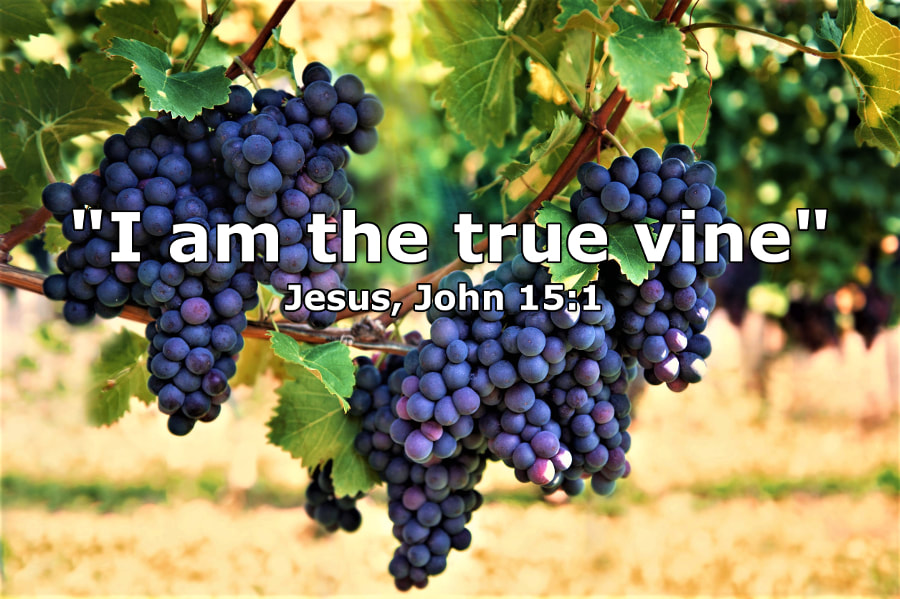
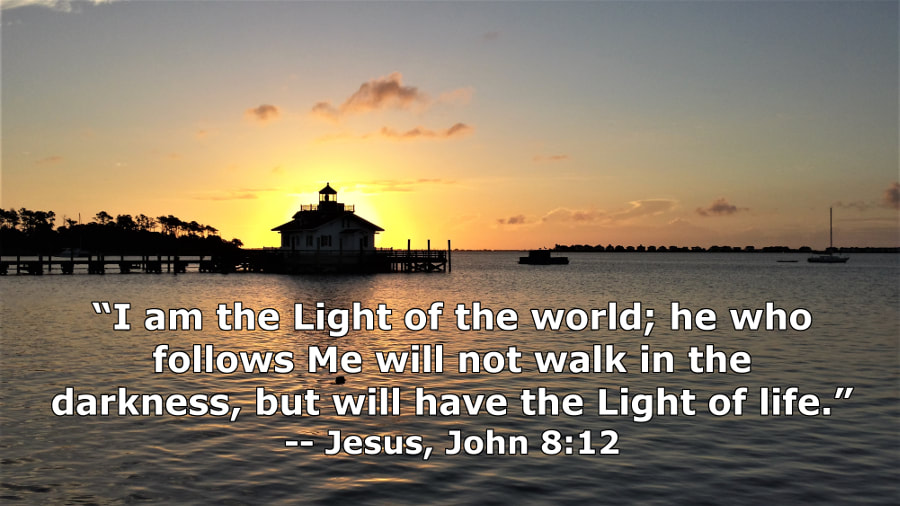
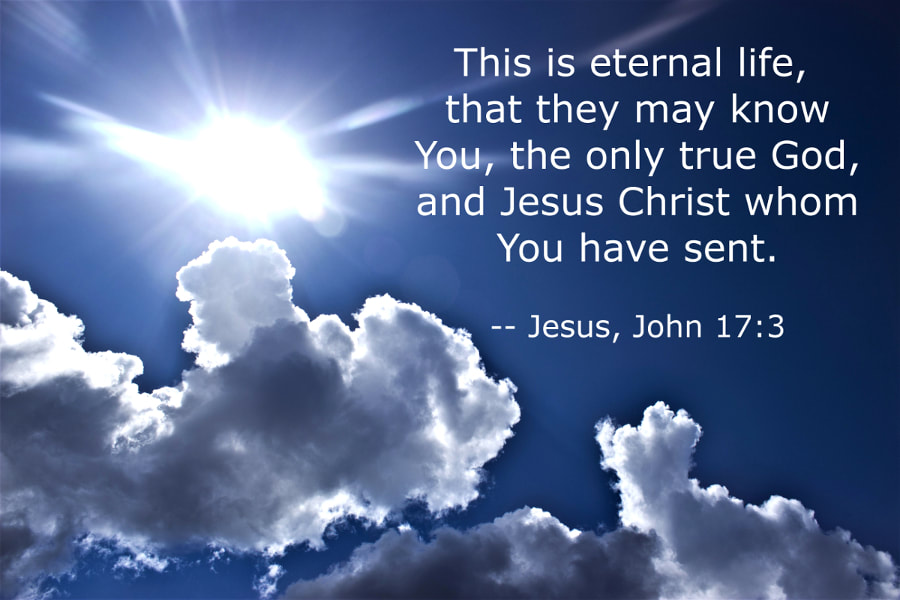
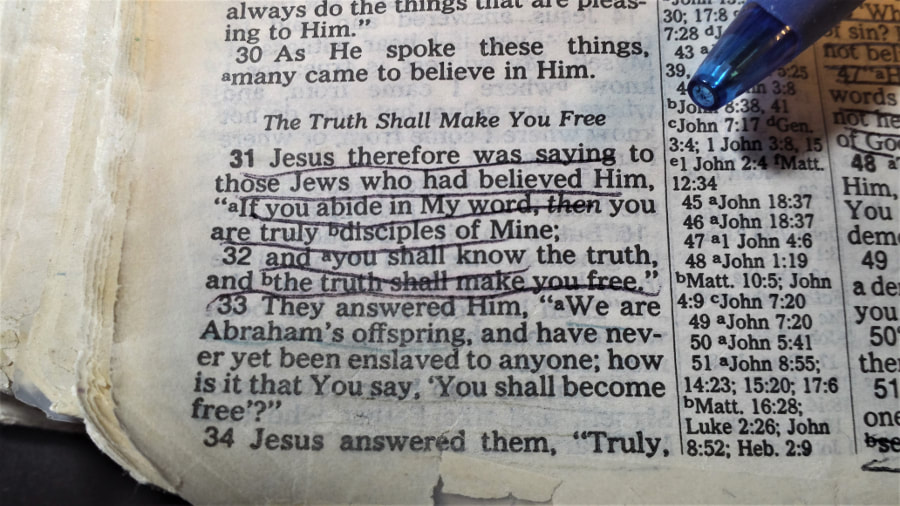
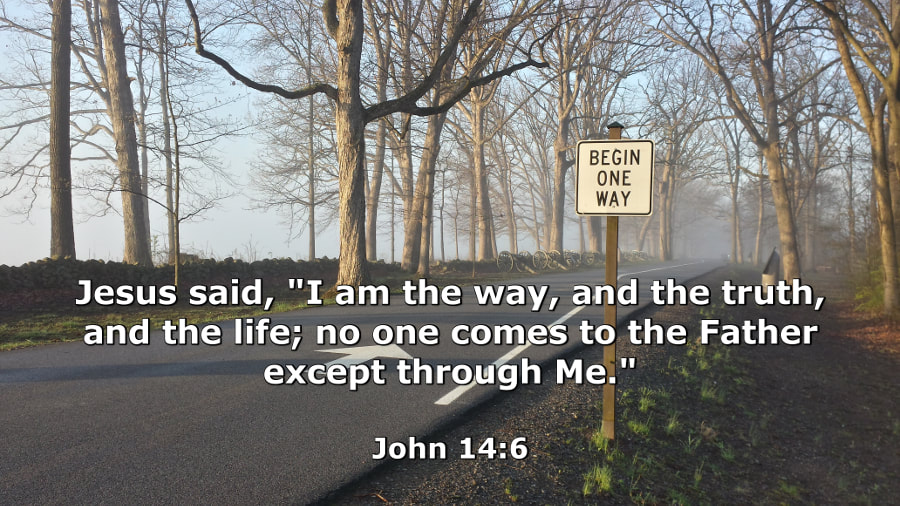
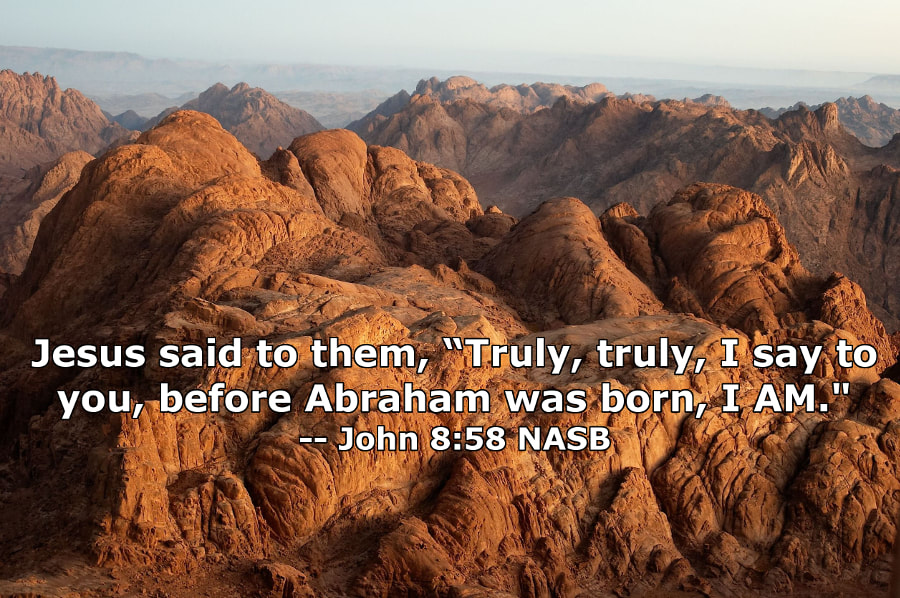
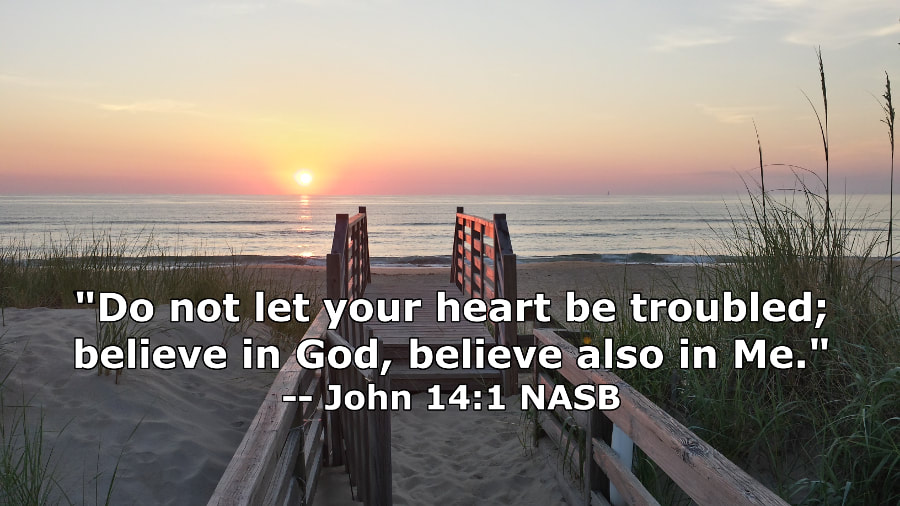
 RSS Feed
RSS Feed
